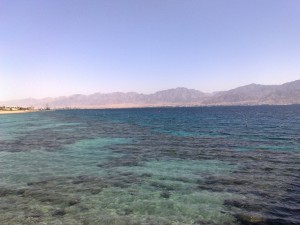 When the second annual Eilat-Eilot International Renewable Energy Conference took place recently with over 700 attendees, it was known and expected that some representatives from both the Israeli and US governments would be there to talk about new projects between the two governments and that there would be other officials from state governments and municipalities there to learn more about cleantech and the solutions for municipalities offered by the vendors in the exhibition. What was less expected was to learn about the collaboration efforts to go green being undertaken on the U.S. state and municipality level with Israel’s southern region.
When the second annual Eilat-Eilot International Renewable Energy Conference took place recently with over 700 attendees, it was known and expected that some representatives from both the Israeli and US governments would be there to talk about new projects between the two governments and that there would be other officials from state governments and municipalities there to learn more about cleantech and the solutions for municipalities offered by the vendors in the exhibition. What was less expected was to learn about the collaboration efforts to go green being undertaken on the U.S. state and municipality level with Israel’s southern region.
During the conference I had the opportunity to meet John A. Berenyi, an alternative energy advisor who has been a key figure in initiating these joint projects. In July 2008, through his efforts, South Carolina became the first state to sign a collaboration agreement with the Eilat region. Under the agreement, the two will conduct research together on alternative and renewable energy opportunities and “promote a more sustainable environment and enhance the quality of life for the citizens of both regions.”
On a more local level, Mt. Vernon, NY is interested in becoming the first green municipality in the United States and is willing to be the first lab for using different Israeli technologies, and has become a sister city of Eilat’s to do so.
Berenyi’s plan is to expand collaboration efforts between state and municipalities and the Eilat region. Tapping state research programs and state VC funds will help make more joint efforts possible as will President Obama’s stimulus plan, which, hidden in little bits, has over $40 billion for alternative energy and sustainable projects that can be good for mature Israeli companies.

 VShield Software Corp.
VShield Software Corp. 

 AqWise:
AqWise: 
 Netafim:
Netafim:  Since I attended
Since I attended  AORA:
AORA: